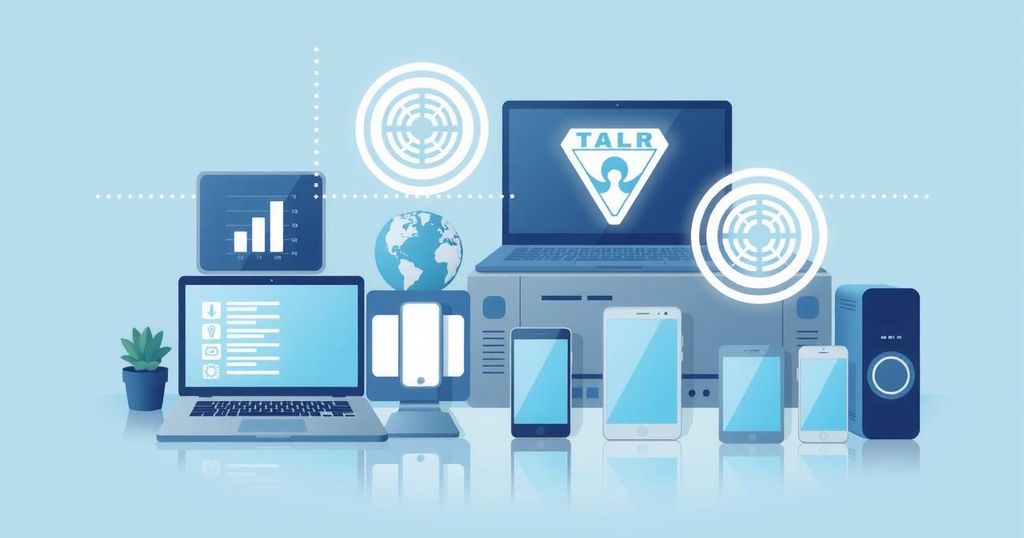The imposition of tariffs on Chinese goods has severely impacted US tech firms, as evidenced by Deena Ghazarian of Austere, who faced steep price increases. President Trump’s renewed tariff policies threaten economic stability and compel businesses to consider price hikes, risking customer loss. Despite diversifying supply chains, many companies still rely on China for production, facing challenges adapting to the new tariff environment.
Deena Ghazarian, an entrepreneur based in California, faced significant challenges due to President Trump’s trade policies soon after establishing her company, Austere, in 2019. Following the imposition of hefty tariffs on Chinese imports, her costs surged by 25%, threatening her business’s survival. Despite these obstacles, her firm managed to endure, yet many US businesses now find themselves in a similar predicament as tariffs have once again increased under Trump’s renewed administration.
In 2023, President Trump raised tariffs on Chinese imports by 20% and imposed additional taxes on products from Canada and Mexico, reflecting his desire to motivate these nations to combat illegal drug trafficking and enhance manufacturing within the US. The scope of these tariffs is broader than previous measures, affecting goods that had not faced tariffs before, such as smartphones and tablets.
Ed Brzytwa, Vice President of International Trade at the Consumer Technology Association (CTA), emphasizes the impact of these tariffs, stating, “US importers have to pay these taxes, not the exporters. It’s American businesses and consumers who will suffer.” Presently, a significant portion of US electronic imports, including 87% of video game consoles and 78% of smartphones, originate from China.
Although some American firms have attempted to diversify their supply chains, countries like Thailand and Vietnam do not match China’s manufacturing capabilities. Additionally, the US President’s focus on Mexico as another electronics supplier complicates matters, as domestic manufacturing faces challenges due to higher costs and stringent regulations. Mary Lovely of the Peterson Institute observes the vital role China plays in global supply chains despite some companies relocating operations.
Research reveals that companies frequently pass tariff costs onto consumers through price increases. A report from Corie Barry, CEO of Best Buy, indicates that the majority of new tariffs may indeed be reflected in consumer prices. Companies like Acer are already warning of potential price hikes, attributing them directly to existing tariffs. Ghazarian, who may need to increase her prices, is concerned about the possibility of losing customers should prices rise beyond a certain threshold.
During Trump’s initial term, exemptions were granted for some products, and there are discussions regarding potential carve-outs this time. Insights suggest that Trump may consider tariffs as leverage for negotiations, correlating them with future concessions. However, escalating tensions remain a concern, as retaliation from countries like China, Mexico, and Canada is probable.
Ghazarian is taking proactive measures to ensure her company’s resilience, having bulk-ordered inventory to withstand future uncertain economic conditions. She acknowledges the need to adapt her business strategy for survival rather than growth, stating, “It’s frustrating I have to focus on survival rather than growing my business.”
The article highlights the strain on US technology firms due to increased tariffs on Chinese imports and their broader economic ramifications. Entrepreneurs like Deena Ghazarian are grappling with heightened operational costs, compelled to adjust consumer prices, which could ultimately impact their market presence. Despite efforts to diversify supply chains, the challenges of transitioning away from China’s manufacturing prowess remain significant, indicating a precarious landscape for American businesses in navigating tariffs and their aftermath.
Original Source: www.bbc.com




